Making Travel Easier...For Family and Special Needs Travelers...
|
|
As Appearing in Insider Travel Report.com 4/21
Social distancing and changes in consumer travel habits have benefited one industry significantly—one that has not up to now been widely embraced by travel advisors. I’m talking here about RV travel and camping. This segment has been embraced by both family travelers and the special-needs travel community. So, will 2021 be a tipping point? Perhaps it should be. According to Statista, in 2017 41.8 million people participated in car, backyard or RV camping in the United States. CampgroundViews.com estimates that 20 percent of campground stays were with rented RVs. Maddie Bourgerie, director of communications & PR for RVshare.com, says her company, the first and largest peer-to-peer RV rental marketplace (think Airbnb of RV rentals) in September 2020 reached the milestone of two million days booked since the company’s inception in 2013. That doesn’t even include the revenue generated by its competitors, Outdoorsy and Cruise America. Considering the average rental runs $150 per day or $1,000 per week according to Bourgerie, similar to the cost of a hotel stay, that’s an estimated $42.8 million annually for her company alone. She says that while her company doesn’t currently pay commissions on such rentals, “it is something on our roadmap.” Those numbers are worth noting. Travel advisors don’t thumb their noses at booking hotel stays, so why RVs? And the niche is booming. In a survey of 2,000 campgrounds and RV parks performed by CampgroundViews.com, nearly two-thirds of respondents stated that their advanced bookings are up 50 percent over average for the 2021 camping season. Twenty-four percent of respondents are seeing advanced bookings up over 80 percent for the same period. “The outdoors and camping provide a safer alternative to other forms of travel and vacations,” says Mark Koep, founder and CEO of CampgroundViews.com. “We expect 2021 to be the year of camping with record numbers of Americans camping in tents, RVs and glamping accommodations.” RV park and campground owners expect a surge in new campers in their parks and are already adapting to provide for this audience. “We are sold out every weekend through the middle of July,” says Marcia Neese, owner of Riverwalk RV Park in Jonesville, N.C. “Our guests are excited and happy to have a place to bring their RV and enjoy their family and friends. We have set up remote check-in and implemented a seamless booking system to allow our guests to interact as much or as little as they feel comfortable doing.” Companies like CampgroundViews.com are bringing a new generation of technology to help campers enjoy their trips. “The timing is perfect as we release campground virtual tours and allow campers to see the roads and sites while being able to click and book specific campsites,” says Koep. “The camping industry is at a critical point in its history with so many now discovering and enjoying the benefits of the great outdoors.” The market is clearly there. John Morris, founder of Wheelchairtraveler.org, has promoted camping even more since the pandemic since “certain groups of disabled people have a higher risk for serious complications due to the coronavirus, a reality that has further restricted the freedoms of many members of the community,” he says. “For those of us who need assistance during travel, it is more difficult to maintain a safe distance from other people. That alone has led many disabled people to write-off leisure travel for the foreseeable future.” His answer? “I have recommended that disabled travelers visit destinations where social distancing is readily achievable, and I have found that many of my blog's readers are taking road trips to national parks and avoiding the big cities.” Morris’ website even features a guide to recreational vehicles and he acknowledges that while he knows of no wheelchair-accessible RVs for lease, travelers can rent a wheelchair van or take their own vehicles to parks and other destinations around the country. RV vacations also are an excellent option for families with children on the autism spectrum. You can more easily provide the comforts of home while you are on the road in an RV than you can in a hotel. “It gives you a lot more control over the sensory stimuli and your schedule,” says Jennifer Hardy of Cruise Planners in Kent, Wash. You can also explore areas that are a little more remote, giving your child the freedom to move and explore more comfortably.” Part Two of this column will focus on where travel advisors can find the commissionable opportunities in ‘RVs and camping.
1 Comment
As Appearing in Insider Travel Report.com. 4/22/21 April is Autism Acceptance Month. Many travel advisors don’t know much about special-needs travel, but they should. It’s been estimated that one out of 54 children in the United States is on the autistic spectrum and that one out of every 10 families have a special needs child. Sadly, while special needs travel continues to be one of the fastest-growing family travel segments, it is one that is severely underserved. The question is, why would you want to rule out 10 percent of your prospective clientele? The International Board of Credentialing and Continuing Education Standards (IBCCES), a global leader in cognitive disorder training and certification--is doing something about the problem. They’ve given travel advisors the ability to become Certified Autism Travel Professionals with the CATP designation. I’m currently writing a book on special needs travel and I’ve interviewed dozens of advisors who have benefited from this training. Unfortunately, many of the spectrum parents I’ve interviewed still plan travel on their own. Clearly more education is needed and hopefully my book will help in that regard. In the meantime, you can learn more about becoming a CATP at Certified Autism Travel Professional (www.ibcces.org). If you or your clients would like to contribute to my book, contact me at [email protected]. While travel advisors can be certified as CATPs, they need specialized destinations where they can send their clients, ones whose staff members are attuned to the sensory needs of clients on the spectrum. To that end, IBCCES gives properties and venues the ability to become certified as Certified Autism Centers (CAC) and even Advanced Certified Autism Centers (ACAC). The big news for Autism Acceptance month this year is that Beaches Resorts, which in 2017 was the first resort company in the world to receive the CAC designation and, in 2019, received the ACAC destination, has extended its ACAC accreditation through 2023. What makes a CAC or ACAC resort different than a typical property? For Beaches Resorts in Jamaica and Turks & Caicos, it means advanced autism training for its staff to increase sensitivity—offered virtually during COVID—with an emphasis on key touch point areas, including kids’ camps, entertainment, front desk/reception, food and beverage and watersports operations. As part of its recertification, Beaches will also expand its training of team members to the airport arrival lounge and reception area in Montego Bay, Jamaica and Providenciales, Turks & Caicos, which offer the first point of contact for Beaches’ arriving guests. At Beaches, spectrum families will benefit from:
Beaches also will launch a Sensory Stimulation Guide for guests with sensory needs, providing comfort and an understanding of what to expect in each designated area of the resort. The guide, which outlines the degree of sensory stimulation in a specific area or event, allows families to easily plan and navigate their visit based on their individual needs. Designated Low Sensory Areas also will be identified at all resorts, allowing guests to find comfort in designated spaces should they need a break from sensory stimulation. These locations will be easily identifiable through resort maps, onsite signage and in pre-travel planning materials. “Like the rest of the world, we know families and autistic individuals are looking forward to traveling, visiting new places, and making new memories as soon as they are able to,” says Myron Pincomb, IBCCES board chairman and CEO. “They are also looking for organizations that are trained and certified in autism, particularly leaders like Beaches Resorts, who go above and beyond. The professionalism, dedication and enthusiasm of the team at Beaches Resorts is second to none, and we are thrilled to continue our partnership to provide long-lasting support and impact.” In addition, Beaches Resorts’ industry-leading Platinum Protocols of Cleanliness were created with consideration of guests with sensory disorders. While first meeting rigorous health and safety standards, the resort company ensures the use of low-fragrance cleaners, fragrance-free hand sanitizers and other products to ensure guests with sensory disorders have an enjoyable and safe experience. Complimentary COVID-19 testing also is available to all registered guests at Beaches Resorts prior to their departure. For more information on Beaches’ longstanding commitment to creating an autism-friendly environment, visit www.beaches.com/all-inclusive/autism-friendly/. Israel has long attracted visitors of many faiths. Thanks to recent construction and renovation efforts, physically challenged travelers can tour certain areas that were previously off-limits.
Jerusalem's Old City, a UNESCO World Heritage Site, in non-COVID years, is normally visited by 10 million visitors each year, but parts were inaccessible to wheelchair travelers. As part of a multi-year project, the East Jerusalem Development Company (PMI) has worked to provide better accessibility to all three of the city’s holy sites, including the Church of the Holy Sepulcher, the Temple Mount, and the Western Wall. Ironically, the virus might have helped speed up progress. Due to diminished tourism during the pandemic, the PMI has been able to take this time to continue making Jerusalem more accessible by adding another kilometer of accessible roads and adding elevators to The Tower of David. They claim that the results have made Jerusalem’s Old City one of the world’s largest accessible historic cities. The work, which has lasted approximately ten years at a cost of 20 million NIS and in cooperation with seven government agencies, included a mission to enlarge the narrow and picturesque alleys of the city, which can now accommodate wheelchairs, carts, and special emergency vehicles. The coronavirus helped by emptying the alleys of hikers for about two months, allowing the Ministry of Jerusalem and the East Jerusalem Development Company to open another kilometer—a fifth kilometer on Chain Street from the corner of David Street to the Temple Mount—that would have normally taken a year. Local tour groups are learning to guide accessible groups under the guidance of Ami Meitav from the Public Cooperation Division of the Jerusalem Development Company. Meitav said that thanks to requests facilitate access for the elderly and the disabled, they added building ramps at the entrances to residential complexes, building additional stairs at the entrance to houses, adding a short stair railing and more. “In recent years, the Old City of Jerusalem has become one of the most accessible ancient cities in the world,” said Moshe Leon Mayor of Jerusalem. “We have the [mandate] to make the Old City and its alleys accessible to anyone and without difference. Jerusalem is renewed for the benefit of all its residents and visitors.” The Mishnah and the Talmud established regulations and laws for the operation of public area in Jerusalem, including that they would ‘repair the roads and streets that were permeated during the rainy season and thus closed to pilgrims…[they are now] accessible and coordinated for all tourists at the highest level,” said Minister of Jerusalem and Heritage, Rabbi Rafi Peretz. “Of course, I welcome the project,” said Yad Sara CEO Moishe Cohen. “The accessibility allows access to almost anywhere and…complex work has been done to adapt to the needs of travelers with disabilities…including the topography, sacred sites of various religions…as well as special historical sites…the section of Roman-tiled street on Christian Street and steep stairs where the accessibility angle is [so] sharp… an attendant is needed to help support the chair. We are [also] working to add accessible services in the Jaffa Gate area, adjusting signage to the eye level of a person sitting in a wheelchair, provide scooter rentals and more.” PMI has produced a printed guidance map available free of charge at the tourist information center at the Jaffa Gate, along with a free dedicated app, available in nine languages, that allows real-time navigation between alleys and sites via a GPS-based system similar to Google Maps. App demos are available at https://www.youtube.com/watch?v=caCxEfuw5gI&feature=youtu.be. For Android: http://play.google.com/store/apps/detaisl?id=pami.accessibility.sayyes For Apple: https://itunes.apple.com/il/app/accessible-roads-jerusalem/id1434672106?mt=8 In addition, throughout the next two years while renovations continue, the Tower of David Museum will remain open for the public (within the guidelines of the Ministry of Health) with temporary exhibitions, with guided tours of the history, the communities, and the archaeology of Jerusalem, as well as cultural activities. More than half a million people visited the Tower of David Museum last year and the addition of two new elevators will make the ancient citadel accessible to all. As printed in InsiderTravelReport.com 3/29/21
For some parents, the zoo is not how they want their children to encounter wildlife or experience nature. I recently caught up with Daryl Keywood, CEO at Walthers DMC and of Authentic Travel Africa, a destination management company that has designed trips for almost 40 years for families throughout sub-Saharan Africa, including Kenya and Tanzania. They also regularly send guests to Rwanda and Uganda for gorilla trekking. Keywood says that childhood is the absolute best time to experience an African safari. “It connects one to the reality of life, resulting in an understanding of the balance in nature,” he says. “Safari can have a profound effect imprinting the importance of the conservation of our planet on young minds. Many senior figures in wildlife conservation today attribute their first safari at an early age as the reason they chose their profession.” Parents may be less convinced, but Keywood offers many talking points to help with the sale. Here’s what he told me in response to my questions: What areas of Africa do you recommend for safaris? I would say South Africa is “Africa made easy,” with great infrastructure, easy access in terms of scheduled direct international flights (though hot currently operating due to COVID-19, but Delta and United should resume shortly), as well as scheduled jet service to the most popular Kruger safari areas with a short road transfer to your lodge. South Africa also is relatively affordable especially compared to Botswana and Kenya. Most of the safari lodges are on private land with lodges adjoining national parks having no boundary fences between the private land and the parks. The big benefit is that off-road safari and night safaris are allowed on private land. Although some concessions in East Africa also offer these, many East African lodges are located within national parks and do not offer off-road or night safaris or the same level of exclusivity. South Africa also has several malaria-free safari reserves which is great for those who cannot take malaria tablets. Animal density is extremely good—on a three-night safari, you will usually see the Big Five—and generally there will never be more than three safari jeeps at an animal sighting. The Kruger area is renowned for fantastic leopard sightings, and South Africa has 90 percent of the world’s remaining rhino population. Because the annual great migration seen in the Serengeti and Mara does not occur in South Africa, I would say that ideally one should experience both East Africa and Southern (Botswana, Zambia and South Africa) safaris to enjoy all the iconic experiences. How realistic is it for travel advisors to try to sell families on the idea of an African safari? On most bucket lists, an African safari is something usually put off until one can afford it. The problem is that at the point where it is affordable, you are encumbered with children and limited vacation time. The conundrum of should one go and leave the kids behind or wait until they are older is no longer a stumbling block when considering a safari. In fact, the opportunity for children to share in the experience adds to it since the restorative power of nature reconnects and bonds families. How does a safari create those connections and bonds? Enter the family-friendly safari, where the team at Authentic Travel Africa will tailor-make a safari to suit you and yours. From a couple with young children to multi-generational travel, there is a safari experience for everyone. We recently organized an 85th birthday safari for a 20-person extended family, including great grandchildren. Almost every safari booking is customized depending on client preferences. For example, pregnant women or those with very young children will usually request a malaria-free region. Aren’t accommodations and transport set up mainly for adults? Traditionally lodges are focused on couples, since safaris are often associated with honeymooners and romantic getaways. But recent trends in lodge design recognize families as guests, so family rooms, two-bedroom suites and even family villas are available at many lodges. Although most lodges limit safari drives to youngsters six years and older, exceptions can be made for families traveling together or those opting to book an exclusive use safari vehicle and guide. Safari lodges are mostly small properties, the majority of which comprise 20 or fewer rooms, so social distancing is automatic with the lodges allocating a vehicle for every six guests. What about keeping kids engaged on safari? There is so much to see and do on safari that even very young children enjoy a trip to the bush. Many lodges are planned around locations where wildlife congregate. That means without even hopping onto a safari vehicle, you can view spectacular animal sightings. It is not uncommon to return from a safari drive to find that elusive elephant drinking at the waterhole right in front of the lodge. Properties that cater to families often incorporate Junior Ranger programs where the younger generation spend time on their own kid’s safari. While larger animals are avoided, there’s an opportunity for the young ones to explore and learn. A kids’ safari might include making plaster casts of lion tracks, learning about threatened wildlife and traditional medicines, how to use the branch of a Gwarrie Tree as a toothbrush, identifying bird calls, learning a few words in the local language, and for the not so young, the basics of photography. What other benefits or learning experiences can families enjoy? Contributing to and participating in conservation efforts is another aspect that may appeal to families wanting to leave a legacy. With funding resources limited, opportunities to contribute range from rhino darting, where the family can join park veterinarians in a “hands on” activity following the tranquilizer darting of the animal. Once safely asleep, the rhino is measured, the ears notched for identification, blood DNA samples are taken, and microchips inserted into the horn to deter poaching. Research also is needed for Cheetah, endangered African Wild Dog (Painted Wolf) and other species, and can involve fitting a tracking collar or other required interventions. What’s available just for parents on safari? It’s their vacation too, and a short break from the young ones might be a welcome respite. At most lodges, babysitters can be arranged and so why not book one to enjoy some quiet reading time or a spa visit? And yes, almost all lodges have a small spa or offer in-room treatments. A handful of lodges even offer a Kids Club, of which Sabi Sabi’s Elefun Center is probably the best example. You are not tied to a lodge during your stay and excursions to local villages, schools and even conservation projects can have a significant impact on a young or older person’s perspective. What changes have you made recently in respect to COVID-19? Each country has its own regulations, but generally a 72-hour PCR test is required prior to arrival. South African regulations are strict with masks required when in public. The standard of COVID protocols is generally high, especially in hotels, lodges and restaurants, with professional staff training and regular testing in place. As a result of requirements for tests prior to flights back to the U.S., several forward-thinking lodges now offer COVID test services with swabs taken at the lodge a day or two prior to departure. Samples are couriered to a recognized laboratory and the results are then emailed to the guests, minimizing delays or an overnight stay in one of the main centers on the return home. Sabi has a resident nurse on call, not only to assist with taking samples, but also if a guest for any reason feels unwell and requires assistance. Most safari countries have rolled out their vaccination programs, but these are slower than North America and few will achieve the 67 percent herd immunity target before the end of 2021. But Africa in general has seen far lower infection rates than North America and Europe, probably due to its young population and low population density. Importantly most properties are showing flexibility when it comes to booking conditions, and although traditionally these were very strict, they are now much more flexible. Are your arrangements commissionable? We generally sell at a net rate to travel advisors but can also offer a commissionable rate if necessary. Also, we do not book international flights to Africa but are more than happy and regularly do assist with domestic and regional flights. For more information, visit https://authentictravelafrica.com. As seen in Travel Insider Report 3/8/21
As COVID-19 positivity levels dip but the global pandemic persists, a recent informal survey of Facebook’s Traveling with Kids Worldwide group asked members what health- and safety-related modifications would make them more willing to travel with their children this spring. Their answers were thoughtful and comprehensive, including such requests as providing voluntary COVID testing upon arrival and departure; isolating rooms for at least three days after guests check out; requiring mandatory and properly worn (over the nose) mask-wearing in common spaces as well as for staff; regularly testing staff; providing info on local testing; and preparing pre-made breakfast bags instead of expecting guests to visit a breakfast buffet. Other requests included limiting elevator capacity; posting prominent signage regarding protocols; removing tables and chairs from public spaces that are “too close for comfort”; and timing guests’ use of public amenities such as pools, breakfast areas and reception space. Said one mom: “[I’d like] having a guarantee that provides isolated/quarantined accommodations should you test positive, or low-cost insurance so if you do test positive, you aren’t stuck without options and a huge additional hotel bill.” Another mom said: “I’d love antibacterial wipes and hand sanitizer in the rooms, plus dish soap to wash non-disposable water bottles and kitchen items. Also, affordable bottled water and grab-and-go breakfasts and even lunches…even if I have to order it the night before. Then we can stay away from one more interior space while touring, [while saving] time and delivery fees.” Hotels and resorts have been quick to implement health and safety protocols. But are they the ones preferred by prospective family guests? In many cases, yes, according to those properties we interviewed. For example, Gaylord Hotels, a Marriott brand, is offering several Easter-oriented programs this spring with COVID safety top of mind. “At all of our Gaylord Hotels, we have redesigned our spring activities and events to deliver a fun experience for the whole family while integrating our new, enhanced health and safety measures,” says John Adams, vice president and managing director. “(Our) line-up of springtime programming provides ample opportunities for families to have a memorable spring break getaway or staycation with the confidence that their experience has been purposely redesigned to respect social distancing and an enhanced Commitment to Clean program.” With protocols in place similar to those preferred by those we surveyed, Marriott overall require all guests and associates to wear face coverings and to limit elevator capacity. The company’s Commitment to Clean program also requires surfaces in public areas and guest rooms to be treated with hospital-grade disinfectants in common areas with increased frequency. In addition, Marriott places disinfecting wipes in each room for guests' personal use. Electrostatic sprayers also are being used to sanitize public areas throughout the hotels. To help ease the risk of COVID-19 transmission through person-to-person contact, Marriott employs signage in its lobbies to remind guests to maintain social distancing protocols and has removed or re-arranged furniture to allow more space for distancing. The company has added partitions at front desks to provide an extra level of protection and is working with supply chain partners to make masks and gloves available to associates. Sanitizing stations are scattered throughout all hotels, including near the entrances and front desks, elevator banks, and fitness and meeting spaces. As for dining, besides enhancing safe food preparation and service practices, Marriott is modifying its operational practices for in-room dining and designing new approaches to buffets. Similarly, many hotels and resorts outside of the Marriott family are also running Easter and spring promotions and have implemented many of these precautions, including the ability to cancel closer to departure date in case of last-minute illness. For example, Hotel Xcaret in Mexico now allows guests cancel their reservations up to seven days in advance with no penalty and has implemented 360 Xafety model to assist guests with COVID-19 detection tests at the company’s resort and parks. Guests staying at the property have access to a complimentary COVID-19 antigen test, with results delivered the same day, or a PCR test for $140, with results delivered within 24 to 48 hours. Guests with a minimum of four-night stay who test positive for COVID-19 before departing to the U.S. will be able to quarantine for up to 14 nights at no cost to them. This new initiative will be effective until March 31, 2021. The 119-room Buenaventura Golf & Beach Resort, Riviera Pacifica in Panama offers guests the flexibility to change their reservations without any penalty or restrictions with the added benefit to reschedule for a future stay. Once there, guests have access to an on-site private clinic, Vidatec, which offer COVID-19 PRC tests for $95, quantitative antibody tests for $35, and antigen tests for $45. Results are delivered by email within 24 to 48 hours. The Ocean Club Resorts in Providenciales, Turks & Caicos, located along Grace Bay Beach, offer a new cancellation policy where can receive a full refund up to 24 hours prior to their stay for stays between now and April 11, 2021. Turks & Caicos requires a negative test prior to arrival. The resorts also have started extending their concierge services to now help travelers with testing on-island during their stay. PCR testing is done for an additional fee of $185 per person onsite at Ocean Club East. Onsite antigen testing at the Ocean Club West location is available for $25 per guest. While the resorts’ suites feature kitchens, so families don’t have to visit the dining room, they have begun offering complimentary breakfast for those who do wish to venture out. Previously, no meals were included with their stays. All of these resorts report that they provide ample signage regarding social distancing, mask-wearing and updated health protocols. Furniture in seating areas, pool, beaches, and restaurants has been rearranged accordingly. For travelers eschewing restaurant dining, all also offer the option to enjoy meals in rooms and suites via room service and takeaway options. For family travelers interested in traveling this spring break, it appears that resorts are providing the precautions and testing to assure travelers are healthy and safe while on vacation. 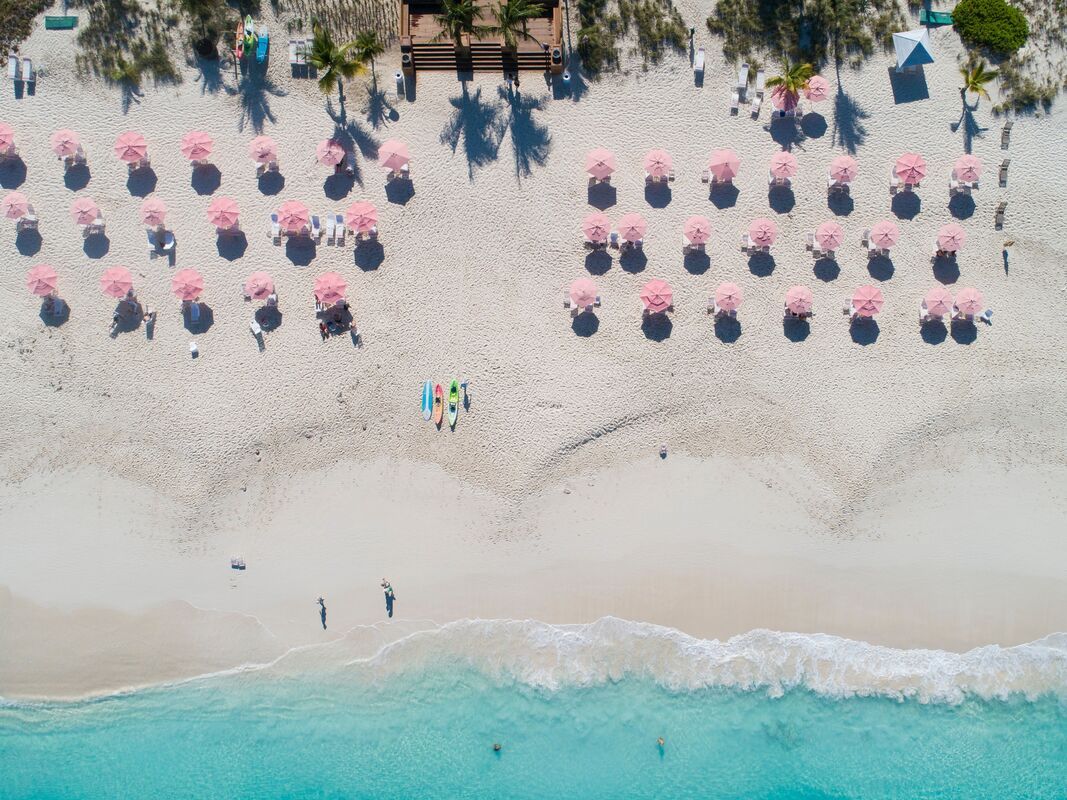 Beach at Ocean Club Resorts Beach at Ocean Club Resorts If you are looking for a COVID-friendly family escape during Spring Break, consider the following warm-weather venues, all having made necessary adjustments to accommodate last-minute cancellation and safety protocols: The Hotel Xcaret Mexico, Quintana Roo is doing everything in its power to keep its guests safe: not only can guests cancel their reservations up to seven days in advance with no penalty, the resort has implemented the 360 Xafety model to assist guests with COVID-19 detection tests at the company’s resort and parks. Guests staying at the hotel have access to a complimentary COVID-19 antigen test, with results delivered the same day, or a PCR test for $140, with results delivered within 24 to 48 hours. Resort guests with a minimum of four-night stay who test positive for COVID-19 before departing to the U.S. will be able to quarantine for up to 14 nights at no cost to them. This new initiative will be effective until March 31, 2021. Along with offering 900 guest suites and easy access to the Caribbean Sea and the Riviera Maya jungle, the Hotel Xcaret Mexico is offering an All-Fun Inclusive Package featuring unlimited entry to the numerous Xcaret Parks, with prices ranging from $285-$358 per night from Feb 1-April 30th, 2021. The 119-room Buenaventura Golf & Beach Resort, Riviera Pacifica, Panama offers guests the flexibility to change their reservations without any penalty or restrictions with the added benefit to reschedule for a future stay. Once there, guests have access to an on-site private clinic, Vidatec, which offer COVID-19 PRC tests for $95, quantitative antibody tests for $35, and antigen tests for $45. Results are delivered by email within 24 to 48 hours. The resort’s Family Experiences package, with rates starting at $249 to include daily breakfast for 2 adults and 2 children under 12 years old, includes complimentary stand-up paddle boards and kayak, daily activities in the Kids Club, a visit to the on-site Zoo, complimentary Wi-Fi and the use of tennis and volleyball courts. Guests can book from now until 12/8/21 using promotional code: MAJ. The Ocean Club Resorts in Providenciales, Turks & Caicos, located along Grace Bay Beach, offer a new cancellation policy: guests can receive a full refund up to 24 hours prior to their stay for stays between now and April 11, 2021. The resorts have also started extending their concierge services to now include helping travelers with testing on-island during their stay. PCR testing is done for an additional fee of $185/person onsite at the resorts’ east location while the concierge can assist guests in setting up an appointment for antigen testing, $50 per person, done nearby. While the resorts’ suites feature kitchens, so families don’t have to visit the dining room, Ocean Club Resorts have begun offering complimentary breakfast for those who do wish to venture out. Previously, no meals were included with their stays.  Gaylord Hotels is unveiling some special COVID-friendly “Spring It On” family packages, valid between March 12-May 16th, 2021, to entice travelers during the upcoming Easter school break and beyond. “At all of our Gaylord Hotels, we have redesigned our spring activities and events to deliver a fun experience for the whole family while integrating our new, enhanced health and safety measures,” said John Adams, VP and Managing Director at Gaylord Hotels. “Whether visiting Gaylord Opryland in Nashville, TN; Gaylord Palms in Kissimmee, FL; Gaylord Rockies in Aurora, CO; or Gaylord Texan in Grapevine, TX, guests will enjoy the resort’s expansive water parks and pools, as well as an incredible line-up of springtime programming that provides ample opportunities for families to have a memorable spring break getaway or staycation with the confidence that their experience has been purposely redesigned to respect social distancing and an enhanced Commitment to Clean program.” Gaylord Hotels’ inaugural Once Upon a Spring programming features live fairytale shows, magical games, artful activities and more. At each of the four resorts, kids can experience “Paint Me A Fairytale,” an interactive live storytelling adventure where Mother Goose paints to life beloved storybook favorites, including Little Red Riding Hood, Jack and The Beanstalk and The Princess and The Pea. Little ones can also flex their culinary skills with each resort’s Cookie Decorating activity, where they can decorate and eat their own spring inspired creations. Gaylord Rockies in Aurora, CO and Gaylord Texan in Lake Grapevine, TX also encourage guests to challenge their minds with spring-themed escape rooms, including the Mad Tea Escape Room at Gaylord Rockies where guests are invited via an anonymous letter to a never-ending tea full of riddles. In addition, from March 12 through Easter Sunday on April 4, Gaylord Hotels will present several Easter-themed experiences: Gaylord Texan and Gaylord Rockies will present Easter EGGstravaganza with a socially distanced Easter Bunny Meet & Greet, Brunch with the Easter Bunny, and a game of Hop-and-Go-Seek during an Easter Bunny Scavenger Hunt. Gaylord Palms will present an Eggspression Garden, an imaginative walkthrough experience featuring blossoming tulips, gigantic Easter eggs, a massive chocolate bunny and five additional spring-themed photo opportunities. On select dates through April 4, families can also enjoy a special Mr. & Mrs. Easter Bunny Character Breakfast in the newly renovated Villa de Flora. At Gaylord Opryland, a special Delta Boat EGG-stra Fun experience will offer a themed indoor cruise that will represent a departure from traditional egg hunts. Kids are also invited to move, shake, dance and celebrate the season at a socially distanced Hop-Along Dance Party. For those more interested in aquatics than Easter eggs, on March 1, Gaylord Palms in Kissimmee, FL opens its newest extension to Cypress Springs Water Park – Crystal River Rapids, a thrilling new action river attraction that will twist and turn guests through speeding currents at three-and-a-half feet per second as they race past roaring waterfalls, crumbling limestone walls and larger-than-life leaves. The resort’s Springtime Pool Party will feature games, sing-a-longs and prizes to keep youngsters amused. Gaylord Opryland’s Spring into Fun Getaway Package rates start at $259 for a family of four, Gaylord Rockies’ Spring It On package start at $219 per night, and Gaylord Palms’ Spring Into Fun package features rates from $199. In separate Easter vacation news, the new JW Marriott Orlando Bonnet Creek Resort & Spa is launching Family by JW, a lineup of activities for kids and families that gives the kid-friendly Orlando travel market a luxury twist. From March to June, the resort will transform into a mystical fairy garden, with special programs focusing on magical fairies and wizards, including fairy-themed story times and interactive letter-writing; scavenger hunts and “springtime”-themed miniature golf and Spring break pool parties and barbecues at Palm Cove. For adults, the resort’s collection of events includes a variety of interactive and make-it-yourself activities involving flowers, alcoholic beverages, and body care products. Spring events and activities for Gaylord Hotels and Marriott Hotels have been developed in accordance with Marriott’s “Commitment to Clean” and with enhanced protocols and social distancing measures. Programming will also operate in accordance with the latest local, state and federal legislation.  As first seen in Insider Travel Report 2/22/21: Post-COVID travel may look different than before, but will likely keep travel advisors busy, says Rainer Jenss, founder and president of the Family Travel Association (FTA). I recently sat down with Jenss, who spoke about how the virus is reshaping travel, common misconceptions about family travel, what’s spurring growth in this niche, and the latest trends travel advisors should keep on their radar. Jenss: “We’re seeing more multi-family travel, where families are vacationing with other families."“We’re seeing more multi-family travel, where families are vacationing with other families,” Jenss says. “They’re traveling together in ‘pods’—meaning groups of friends who spend time with each other at home and are now going out on the road together too.“ “For years, tour operators have brought different families together, but this is the first time we’ve seen proactive booking of such groups,” Jenss says. “There’s more of a trust factor between people who know each other, a way to better control [their] environment.” According to Jenns, one of the more interesting and innovative developments has been [the rise of] resorts catering to families who want a “workcation,” a chance to leave their homes but still work or study remotely. Jenss pointed to the Alisal Guest Ranch and Resort, in Solvang, Calif., which, like many destinations and hotel chains, targeted this market in 2020. “They transformed their kid’s club into a virtual learning space called Alisal Academy,” Jenss says. “It’s a way to work while still enjoying activities like horseback riding in beautiful surroundings, a great distraction or departure from the monotony of being home for so long.” The COVID-19 pandemic has also spurred on additional interest in vacationing outdoors with loved ones. “We saw a similar boom in post 9-11, a heightened appreciation for family,” Jenss says. “Now it’s particularly acute, especially among those who have lost family members and are therefore particularly appreciative of spending time together. Let’s face it, Zoom calls are great, but can only do so much.” Jenss says that KOA stays and RV travel are booming because they allow you to keep a safe distance from other travelers. Glamping (glamorous camping, where tents and sleeping bags are already set up), while not a huge niche, is also growing in popularity. Popular in Europe and the U.K., it’s not always expensive, and it’s now available in the Adirondacks and the Berkshires, among other places. How are travelers booking these vacations? “We’re seeing a resurgence in consumers consulting with travel advisors, which goes against the conventional wisdom that everyone books directly through websites,” Jenss says. “They’re realizing that post-COVID, no one is better equipped and ready to handle their bookings than travel advisors, which like insurance, add a level of protection that more and more families will be looking for.” Jenss also redefines what family travel really is. “We have to remember what ‘family’ means,” he says. “The way we define it at the FTA is really one family member traveling with another member of the family. Most people think of the traditional nuclear family as mom and dad and two kids, the iconic scene of families on the beach, running up and down the surf. But the industry is now responding to the unique variations on families of various shapes and sizes, such as multi-ethnic families. One of our members, R Family Vacations, caters to LGBTQ families.” Jenss says what really generated the growth in family travel, at least pre-COVID, is multigenerational travel: three generations traveling together, including parents, grandparents, and children. “The grandparent demographic has been growing, both in size and in age,” he says. “People are living longer and healthier. And what’s trending is Skip-Gen, which is a new term referring to grandparents traveling with grandchildren.” “It’s an outgrowth of a demographic reality: couples are having children later, often in the prime of their careers when the children are growing old enough to travel,” Jenss says. “It’s also due to a shift in the mindset of grandparents. They’re no longer just concerned about leaving inheritance, gifting money, and wealth, but gifting experiences.” “And for seniors, there’s so much more accessibility now,” Jenss says. “Take safaris. Twenty-seven years ago, when we went, you wouldn’t see so many older people and children on safaris. Now you see lots because the tour companies are now catering to families and the older generation.” Jenss says that In 2021 the FTA will be establishing standards and guidelines for what it means to be family friendly. “We will also be creating a certification program that will help consumers and travel advisors identify those organizations that adhere to those criteria,” he says. 2/24/2021 1 Comment Dogs are Family Too!Heading to Chicago? No need to leave Fido behind. The Hotel Zachary's Bark and Park Package will make sure your furry friend is just as comfortable as you by providing a dog bed, food & water bowls and a signature Hotel Zachary-branded welcome amenity for your pooch. All shapes and sizes welcome! Valid through November 24, 2021, the package also includes complimentary parking, and a waived pet fee. For baseball fans, another plus: the hotel looks out onto iconic Wrigley Field.
|
Author.My name is Dawn M. Barclay. My parents were owners of Barclay Travel Ltd. and later, Barclay International Group, and I basically grew up in the travel industry. Along with stints working with both companies and a few other travel-related firms, I've served as a senior editor/reporter at Travel Agent Magazine, a contributing editor at Travel Life, the meetings/incentive editor at Travel Market Report and now, the Contributing Editor for Family Travel and Special Needs Travel at Insider Travel Report. My articles have also appeared in the pages of Jax Fax, GoNomad, and Successful Meetings Magazine. I also write psychological thrillers and romance as D.M. Barr. Archives
April 2021
CategoriesAll Africa Chicago COVID Easter Family Travel For Travel Agents FTA Hotels Israel Mexico Panama Pet Travel Safari Special Needs Wheelchair Travel |
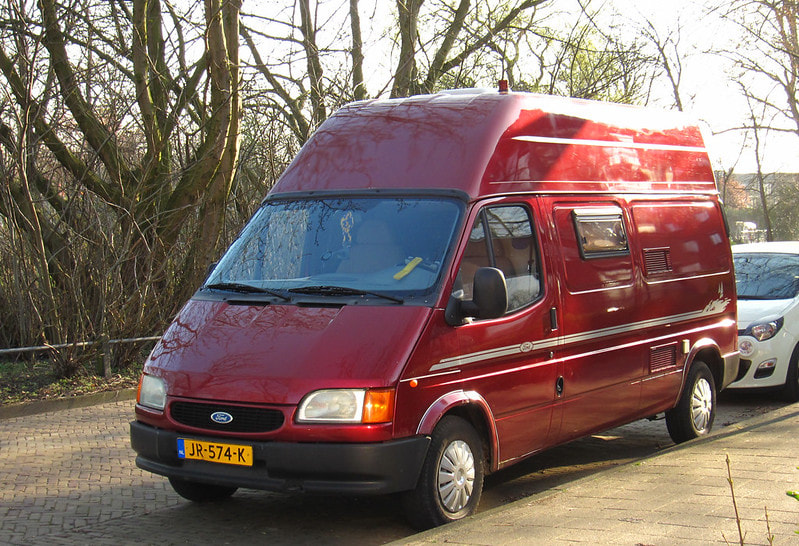
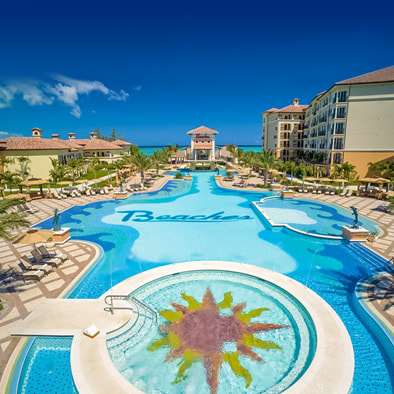


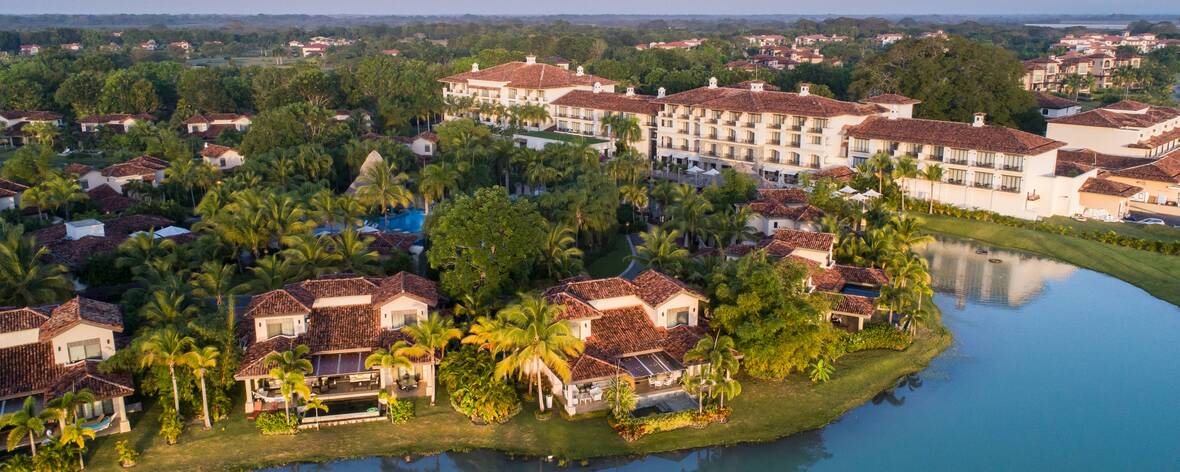
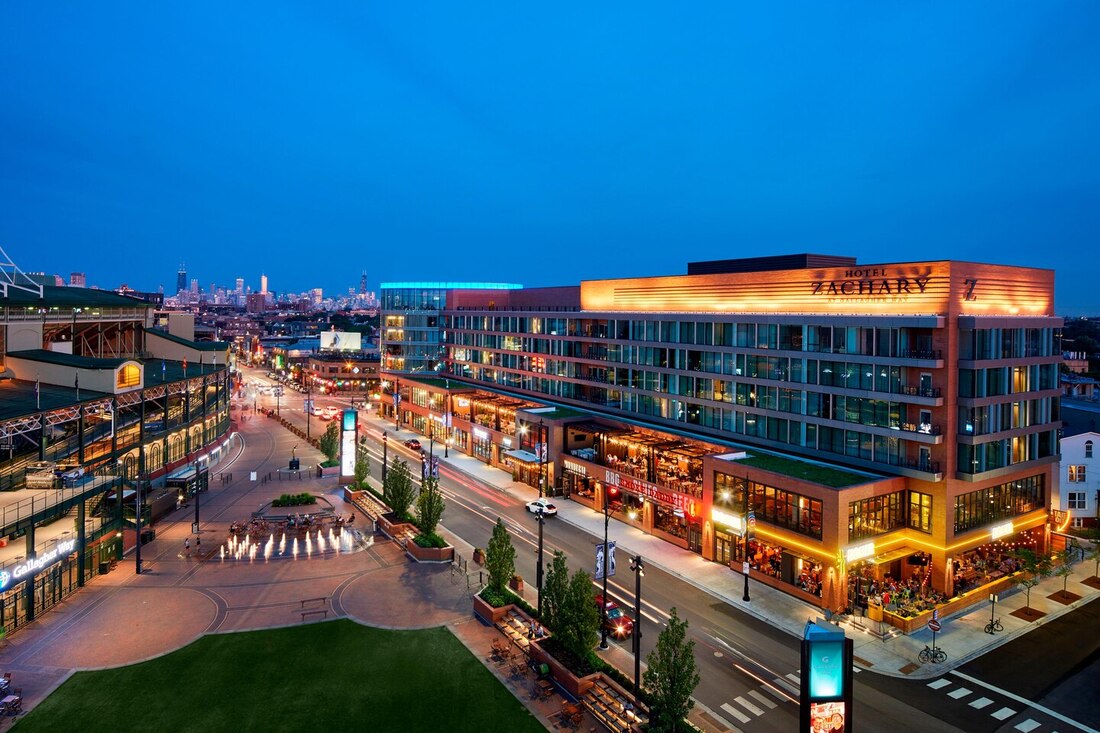
 RSS Feed
RSS Feed